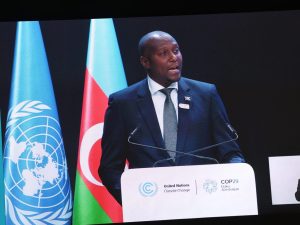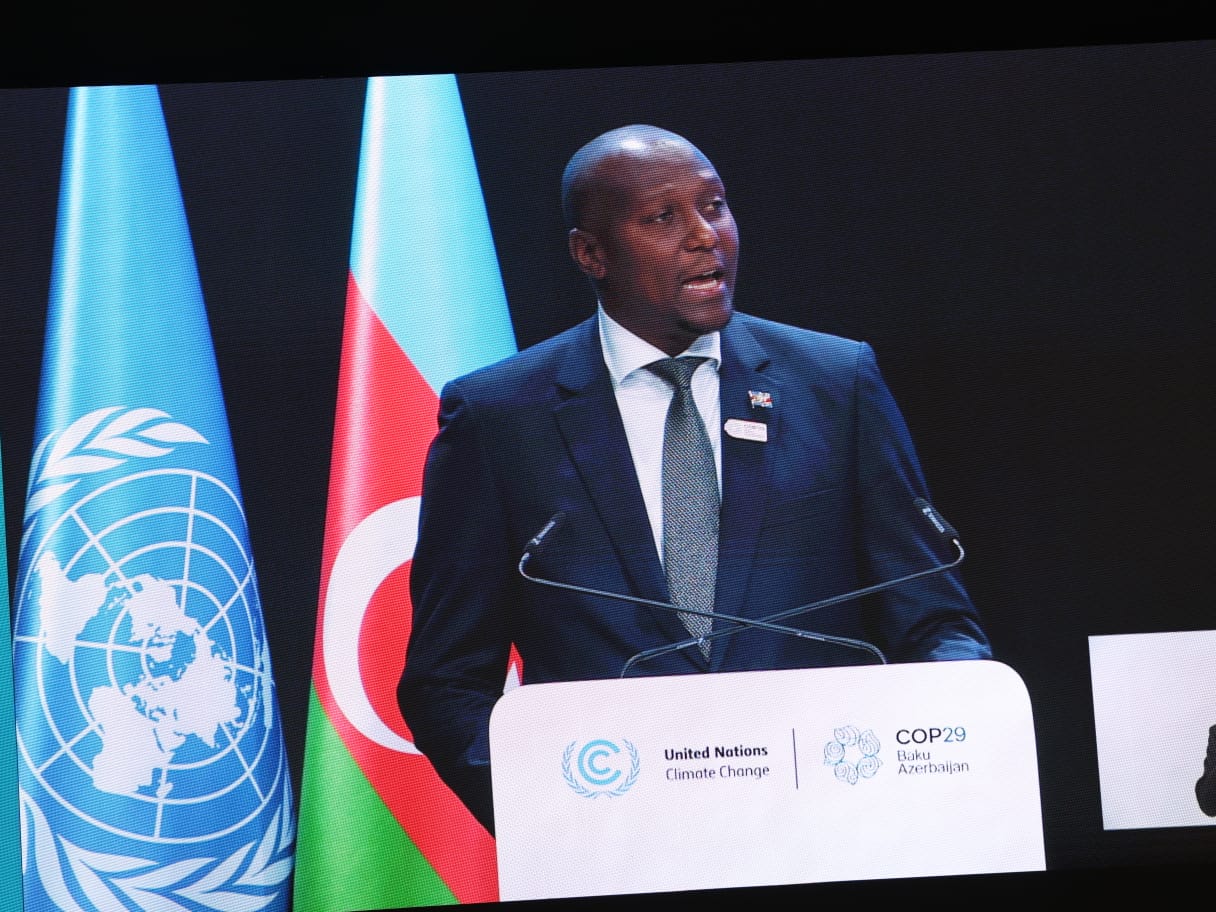By Ncaba Ntshakala
Prime Minister Russell Dlamini has advocated for global unity, climate finance reform, and equitable action to combat climate change.
The Premier was speaking on behalf of His Majesty King Mswati III when addressing the COP29 Summit. He emphasized the urgency of the climate crisis, referencing recent destructive hailstorms and droughts that have destabilized Eswatini’s agricultural sector and threatened livelihoods across the nation.
The Prime Minister painted a stark picture of the current climate trajectory, warning that “the World Meteorological Organization forecasts an 80% chance that global temperatures will exceed 1.5°C above pre-industrial levels within the next five years—a catastrophic milestone.”
RELATED: “There is a critical and urgent need to address escalating climate crisis,” says Prime Minister
Citing data from the UNEP Adaptation Gap Report, he stressed that adaptation costs could reach up to E6.1 trillion ($340 billion) by 2030, raising the question:
Have we failed after 30 years of climate negotiations?
Using this critical juncture as a call to action, Dlamini invoked the words of Alexander the Great, stating, “Upon the conduct of each depends the fate of all.”
He urged COP29 delegates to seize what may be the last opportunity to reverse climate change’s worst effects, highlighting the necessity of both increased commitment and genuine international collaboration.

He emphasized that the burden of climate action should not unfairly fall on developing countries, underscoring the need for “equitable solutions for all people, profits, and our planet.”
The Premier also called for Taiwan to be included in global climate efforts, arguing that Taiwan’s expertise could be instrumental in collective climate resilience strategies.
“Meaningful action demands that no country be left behind,” he stated as he advocated for a united global response that harnesses contributions from all willing participants.
RELATED: Japan’s Prime Minister Kishida to resign, paving way for new leader
Moreover, the Prime Minister also emphasized the importance of accessible and effective climate finance for developing nations, including Eswatini, which face frequent climate-induced disasters.
He highlighted the barriers that manydeveloping countries encounter when seeking financial assistance, noting that these complex processes often delay or prevent aid, hindering critical adaptation and recovery efforts.
“Disaster relief and climate finance must be streamlined and expanded, with a focus on adaptation, mitigation, and just transitions,” he urged.
Again, with Eswatini working on finalizing its updated Nationally Determined Contributions (NDC 3.0), the Prime Minister stressed the importance of developed nations leading by example, both in action and support.
“Together, we must commit to a world where future generations will look back on this moment as the turning point toward a resilient and sustainable planet,” he concluded.


